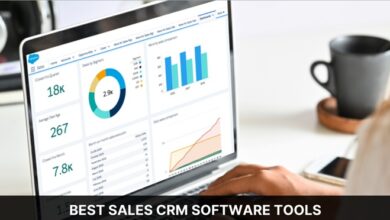What Do You Need To Know About Common Business Loan Terms?

This post will explain about Business loan terms. A business loan is a loan made to a business to aid in its expansion or growth. The loan can be used for a number of things, including investing in new goods or services, purchasing new machinery, or recruiting new personnel. Depending on the collateral the business may offer, business loans can be either guaranteed or unsecured.
What Do You Need To Know About Common Business Loan Terms?
In this article, you can know about What Do You Need To Know About Common Business Loan Terms? here are the details below;
A loan that a business takes out to pay for different business expenses is known as a business loan. The terms and conditions of each loan will fluctuate based on the lender, and there are numerous different types of business loans available. It’s crucial to shop around and evaluate various lenders to acquire the best loan for your business.
Did you realise?
Business loans are most frequently used to fund the acquisition of new equipment, expand the business, or pay for inventory costs.
What is a Business Loan?
A variety of business loans are available, including secured and unsecured loans as well as loans from conventional and non-traditional lenders. Equipment, real estate, or stock are used as collateral for secured loans. In the event that you default on the loan, the lender may seize the collateral as security.
Unsecured loans are more harder to qualify for since they lack collateral. Alternative lenders, including those found online, frequently have more lenient standards.
Eligibility For a business Loan
To be eligible for a loan, your credit history must be good. The implication of this is that you will require both a high personal and business credit score. You could still be able to secure a loan if your credit isn’t great, but the interest rate will probably be higher.
Common Business Loan Terms
Because the lender will want to know how you intend to spend the loan money, this is necessary. They’ll also check to make sure you have a decent probability of paying them back.
Loan Amount:
Collateral is required to secure the loan. This security can take the form of real estate, machinery, or even receivables. The interest rate will be lower the more collateral you have.
You must be ready to pay an interest rate that is higher than what you would pay on a personal loan. Because they carry a bigger risk than personal loans, business loans are the reason for this. Finally, it would be beneficial if you compared interest rates and terms.
You should evaluate offers from several lenders before choosing a loan because there are many of them available.
Interest Rate:
Depending on the lender and the particulars of the loan, the terms of a business loan will change. However, there are a few essential factors to take into account before applying for a business loan. Loan Amount: The total quantity borrowed from the lender for a business loan is referred to as the loan amount.
This sum can be utilised for a number of things, including working capital, business growth, or the purchase of new equipment. The size of the loan will depend on the business’s financial requirements and the borrower’s creditworthiness. Interest Rate: The part that a lender charges in the form of interest. A percentage of the loan amount is used to represent the interest rate.
The cost of the loan to the borrower increases as the interest rate rises. The interest rate on a company loan is crucial since it has an impact on the loan’s overall cost.
The cost of the loan will increase with the interest rate. It’s crucial to check interest rates from various lenders when looking for a business loan. When comparing loans, the interest rate is just one thing to take into account.
The following are additional considerations:
- Term of the loan.
- The loan borrowed.
- The timetable for payback.
- The costs related to the loan.
Even while it’s a significant consideration when looking for a loan, the interest rate on a business loan is only one of many.
Before making a choice, be sure to check interest rates offered by different lenders and take into account all the aspects that will effect the final cost of the loan. Even while it’s a significant consideration when looking for a loan, the interest rate on a business loan is only one of many.
Before making a choice, be sure to check interest rates offered by different lenders and take into account all the aspects that will effect the final cost of the loan. The cost of borrowing money is indicated as an interest rate, which is a percentage of the loan amount.
Repayment Schedule:
A repayment schedule for a business loan is a plan that specifies when and how you will pay back your loan. Making a realistic and doable payback schedule is crucial since it will keep you on track with your payments and prevent you from going into loan. When establishing your repayment plans, you should take into account a digit of factors, including the total loan amount, the interest rate, the term of the loan, and your own financial status.
Additionally, you must choose how frequently you will make payments; this might be weekly, fortnightly, or monthly.
After taking into account each of these elements, you may design a repayment schedule that suits your needs. Keep in mind that your circumstances may change over time and you may need to make adjustments to your repayment schedule to guarantee that you can still make your payments.
Schedules might be weekly, fortnightly, or monthly, and you can choose the day that works best for you to make your repayments. Additionally, you are free to make extra payments whenever you want without incurring any fees, which might speed up the payback of your loan.
Collateral Requirements
A borrower may use an asset or piece of property as collateral to secure a loan. In the event that the borrower is unable to repay the loan, the collateral is utilised to secure the loan. The lender may take the collateral as loan for the loan if the borrower defaults. A business loan’s collateral requirements vary depending on the loan and the lender.
For a guaranteed loan, such as a mortgage or home equity loan, collateral might be necessary. The home or other property being acquired is frequently used as collateral for these kinds of loans. The borrower’s assets, such as a car or savings account, serve as collateral for unsecured loans like personal loans or business lines of credit. The lender will determine how much security is needed for the loan.
The collateral value needed for a loan may be higher for some lenders than for others. Cash, stocks, bonds, or other assets can be used as collateral for a loan. The importance of the collateral must be at slightly as high as the loan amount. Read this article as well: Factory Loan In India – Eligibility, Conditions, Rewards, and Features
Conclusion
A business owner obtains business for inventory, payroll, and other operational costs by taking out a business loan.
Although there are many different types of business loans, traditional small business loans aim to be provided in a flat sum with a defined monthly payment and interest rate. For business loans, traditional lenders with more rigid standards include banks, credit unions, and online lenders. They can ask for more collateral, a better credit score, and a thorough business plan.
For the most recent information on micro, small, and medium-sized enterprises (MSMEs), business advice, income tax, GST, salaries, and accounts, check out Khatabook.
FAQs
What dangers come with borrowing loan for a business?
Ans:
Taking out a business loan comes with a number of dangers. These include the possibility of default, which could result in the loss of the loan’s security. Furthermore, it may be challenging to get a business loan, and the terms might not be favourable.
How can I apply for a business loan?
Ans:
Obtaining a business loan is possible in numerous ways. You might speak with banks or other financial institutions, or you could employ internet lenders. Strong credit and a sound business plan are the best ways to obtain a loan.
What conditions must a business loan meet?
Ans:
Depending on the lender, the requirements for a business loan can change. However, the majority of lenders will demand that you have a sound business plan and a history of good credit.
What are the advantages of acquiring a business loan?
Ans:
A business loan might have a number of advantages. These can include the capacity to finance operations or business growth, which would result in higher earnings. Business loans can also serve as a source of working capital that can be applied to other endeavours.
How do business loans function?
Ans:
In most cases, how business loans operate is that the lender extends a loan to the business, which the business then utilises for the designated purpose. The loan must subsequently be repaid by the business over a predetermined time period, together with interest.


